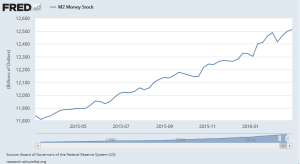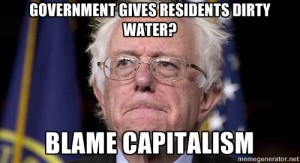News Story of the Day: Americans still dislike Congress. According to a new Gallup poll, the approval rating at Congress is just 13 percent. This is substantially down from 84 percent in 2002, but it’s up from nine percent a couple of years ago. It’s also perplexing to see that the GOP and Democratic representatives have such a low approval rating, but the voters want more of the same.
Here is the polling institution’s bottom line:
“Americans have generally rated Congress poorly over the past four decades. Ratings since Obama took office have been and continue to be well below the overall average and near historical lows. Any gains in approval in recent years have been minor and short-lived, even after changes in party control of one or both houses of Congress in 2007, 2011 and 2015.”
What should be noted is that incumbents are usually re-elected. This suggests that Americans may dislike the other person’s congressman or senator but defends their congressman or senator’s reputation to the death!
Chart of the Day: The money printing continues. Despite the primary program of quantitative easing coming to an end, the Federal Reserve can’t get enough of the printing press. The elites, cronyists and well-connected are just lining up at the money spigot while everyone else suffers.
Illustration of the Day: 2016 presidential candidate Bernie Sanders has talked about the latest crisis going on in Michigan, including Detroit’s collapse and Flint’s water situation. During a recent Democratic debate, Sanders blamed capitalist corporations for the situation residents are in (SEE: Why is Bernie Sanders blaming Detroit bankruptcy on capitalist corporations?).
Quote of the Day: “Free” trade has been one of the major issues this election cycle. Donald Trump blames China for the trade inequity, Ted Cruz hates TPP and Marco Rubio was a level playing field. Bernie Sanders hates free trade, and Hillary Clinton just flip flops on the matter so you don’t know where she stands. But why is free trade so complicated? Free trade is simply importing or exporting goods to and from other countries. Why does this have to involve politicians, intricate agreements and corruption? Because government free trade agreements have nothing to do with free trade.
Here is legendary economist Murray Rothbard on the North American Free Trade Agreement (NAFTA):
“In the first place, genuine free trade doesn’t require a treaty (or its deformed cousin, a “trade agreement”; Nafta is called a trade agreement so it can avoid the constitutional requirement of approval by two-thirds of the Senate). If the establishment truly wants free trade, all it has to do is to repeal our numerous tariffs, import quotas, anti-“dumping” laws, and other American-imposed restrictions on trade. No foreign policy or foreign maneuvering is needed.”
Video of the Day: Donald Trump seems like a protectionist when he discusses free trade. He claims he supports free trade but he wants to impose taxes and tariffs. This video shows Milton Friedman debating a protectionist:


Leave a Comment